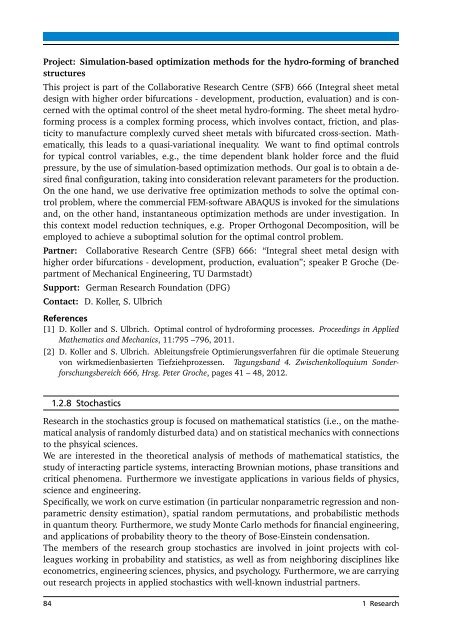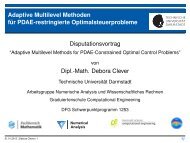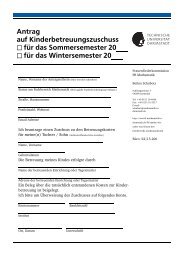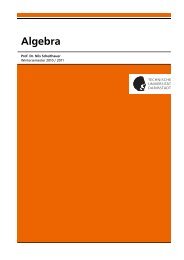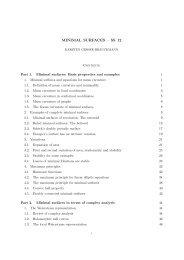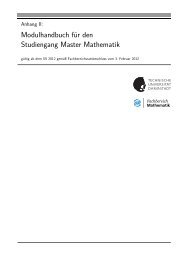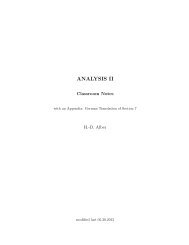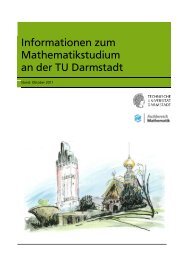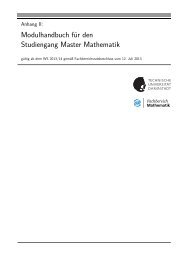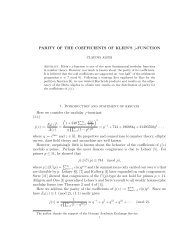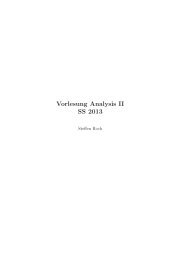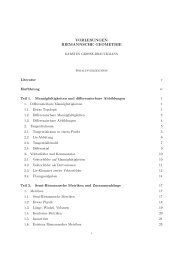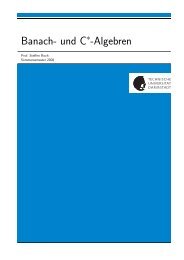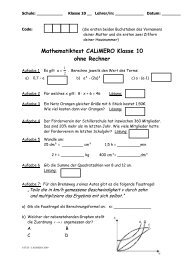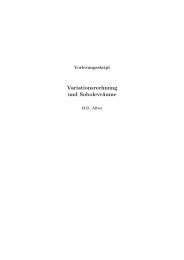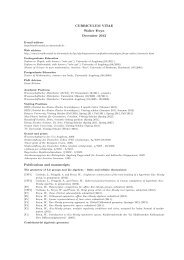Biannual Report - Fachbereich Mathematik - Technische Universität ...
Biannual Report - Fachbereich Mathematik - Technische Universität ...
Biannual Report - Fachbereich Mathematik - Technische Universität ...
Create successful ePaper yourself
Turn your PDF publications into a flip-book with our unique Google optimized e-Paper software.
Project: Simulation-based optimization methods for the hydro-forming of branched<br />
structures<br />
This project is part of the Collaborative Research Centre (SFB) 666 (Integral sheet metal<br />
design with higher order bifurcations - development, production, evaluation) and is concerned<br />
with the optimal control of the sheet metal hydro-forming. The sheet metal hydroforming<br />
process is a complex forming process, which involves contact, friction, and plasticity<br />
to manufacture complexly curved sheet metals with bifurcated cross-section. Mathematically,<br />
this leads to a quasi-variational inequality. We want to find optimal controls<br />
for typical control variables, e.g., the time dependent blank holder force and the fluid<br />
pressure, by the use of simulation-based optimization methods. Our goal is to obtain a desired<br />
final configuration, taking into consideration relevant parameters for the production.<br />
On the one hand, we use derivative free optimization methods to solve the optimal control<br />
problem, where the commercial FEM-software ABAQUS is invoked for the simulations<br />
and, on the other hand, instantaneous optimization methods are under investigation. In<br />
this context model reduction techniques, e.g. Proper Orthogonal Decomposition, will be<br />
employed to achieve a suboptimal solution for the optimal control problem.<br />
Partner: Collaborative Research Centre (SFB) 666: “Integral sheet metal design with<br />
higher order bifurcations - development, production, evaluation”; speaker P. Groche (Department<br />
of Mechanical Engineering, TU Darmstadt)<br />
Support: German Research Foundation (DFG)<br />
Contact: D. Koller, S. Ulbrich<br />
References<br />
[1] D. Koller and S. Ulbrich. Optimal control of hydroforming processes. Proceedings in Applied<br />
Mathematics and Mechanics, 11:795 –796, 2011.<br />
[2] D. Koller and S. Ulbrich. Ableitungsfreie Optimierungsverfahren für die optimale Steuerung<br />
von wirkmedienbasierten Tiefziehprozessen. Tagungsband 4. Zwischenkolloquium Sonderforschungsbereich<br />
666, Hrsg. Peter Groche, pages 41 – 48, 2012.<br />
1.2.8 Stochastics<br />
Research in the stochastics group is focused on mathematical statistics (i.e., on the mathematical<br />
analysis of randomly disturbed data) and on statistical mechanics with connections<br />
to the phsyical sciences.<br />
We are interested in the theoretical analysis of methods of mathematical statistics, the<br />
study of interacting particle systems, interacting Brownian motions, phase transitions and<br />
critical phenomena. Furthermore we investigate applications in various fields of physics,<br />
science and engineering.<br />
Specifically, we work on curve estimation (in particular nonparametric regression and nonparametric<br />
density estimation), spatial random permutations, and probabilistic methods<br />
in quantum theory. Furthermore, we study Monte Carlo methods for financial engineering,<br />
and applications of probability theory to the theory of Bose-Einstein condensation.<br />
The members of the research group stochastics are involved in joint projects with colleagues<br />
working in probability and statistics, as well as from neighboring disciplines like<br />
econometrics, engineering sciences, physics, and psychology. Furthermore, we are carrying<br />
out research projects in applied stochastics with well-known industrial partners.<br />
84 1 Research


